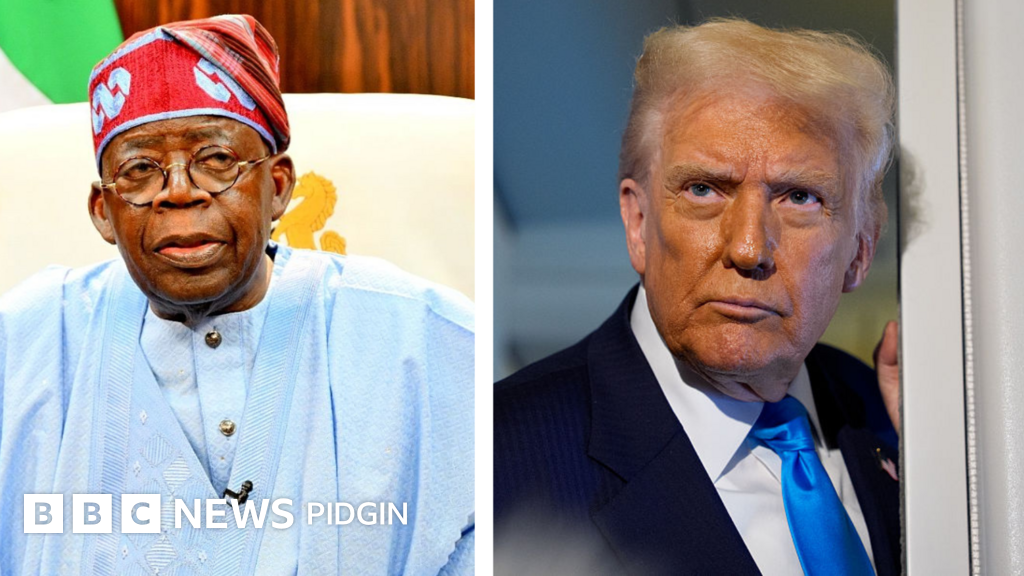Nigeria: A Response to the U.S. Designation as a “Country of Particular Concern”
On November 1, 2025, Nigeria publicly rejected claims made by former U.S. President Donald Trump, who designated it as a “country of particular concern” due to alleged widespread killings of Christians. This declaration stirred significant discourse, prompting Nigeria’s government to clarify its stance.
Nigeria’s Official Response
In a statement released on the morning of November 1, Nigeria’s Minister of Foreign Affairs, Ambassador Yusuf Tuggar, addressed Trump’s allegations emphatically, suggesting they do not align with the realities on the ground in Nigeria. He emphasized Nigeria’s commitment to combat extremism, which he noted has been exacerbated by special interests that fuel instability in West Africa.
Furthermore, Tuggar reaffirmed Nigeria’s longstanding relationship with the United States, voicing that the government of President Bola Ahmed Tinubu will maintain a steadfast commitment to all partners focused on promoting peace, stability, democracy, and freedom.
Trump’s Assertions and Allegations
Trump’s comments, made the previous day, resonated with a long-standing concern over religious tensions within Nigeria. He claimed, “The United States cannot stand by and watch these atrocities as they happen in Nigeria,” asserting that a sizeable number of Christians have faced violence and persecution. His remarks brought international attention back to Nigeria’s complex socio-religious dynamics.
Moreover, Trump directed some members of Congress, including Representatives Riley Moore and Tom Cole, to investigate the claims regarding the treatment of Christians in Nigeria. His statements link to a broader narrative about religious freedom worldwide, creating a backdrop of urgency around the issue.
Understanding “Country of Particular Concern”
The designation of a “Country of Particular Concern” (CPC) is a serious label within U.S. law, primarily reserved for nations that exhibit severe violations of religious freedoms. Under the International Religious Freedom Act (IRFA) of 1998, this designation allows the U.S. government to impose sanctions or other diplomatic measures against offending countries.
According to the U.S. Department of State, nations designated as CPCs engage in severe violations of religious freedom. They are required to produce annual assessments regarding their religious freedom status, potentially leading to sanctions if significant violations persist.
Nigeria’s Long-standing Religious and Ethnic Tensions
Religious and ethnic tensions in Nigeria have a long history, particularly pronounced in the northeastern region, where extremist groups like Boko Haram and the Islamic State West Africa Province have perpetrated violence for over a decade. Various conflicts, notably between farmers and herders, have led to significant casualties in regions like Plateau and Benue.
It’s noteworthy that this is not Nigeria’s first encounter with such designations. The last time it was labeled a “Country of Particular Concern” by the U.S. was in December 2020. However, this designation was lifted by the Biden administration in November 2021 without an official explanation.
Political Reactions in the U.S.
The re-labeling of Nigeria by Trump has not gone unnoticed in American political circles. Texas Senator Ted Cruz praised Trump’s decision, stating he has long advocated for legislative measures to address the violence against Christians in Nigeria. Cruz highlighted his efforts to ensure accountability for individuals facilitating jihadist violence and enforcing blasphemy laws in Nigeria.
He characterized his proposed legislation as a necessary step in combating the persecution of Christians and expressed his continued commitment to working with the administration and Congressional colleagues on the matter.
The Broader Impact on U.S.-Nigeria Relations
The classification of Nigeria as a “country of particular concern” carries with it profound implications for diplomatic relations. It raises questions about how both nations will navigate the challenges of religious freedom, extremism, and intercommunal strife. The U.S. has traditionally been an ally of Nigeria, but the renewed focus on religious persecution could complicate future interactions.
In an age where international relations often intertwine with issues of human rights, the unfolding narrative around Nigeria and its religious dynamics remains essential not only for its domestic harmony but for global discussions surrounding religious freedoms.



